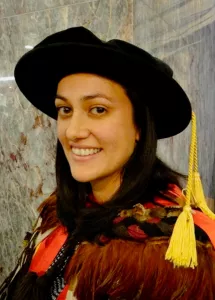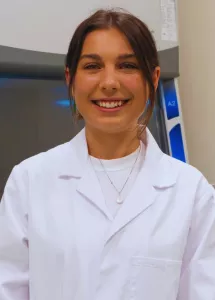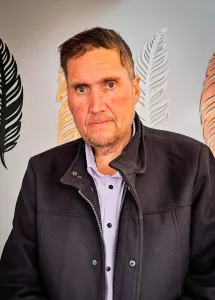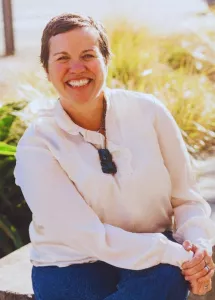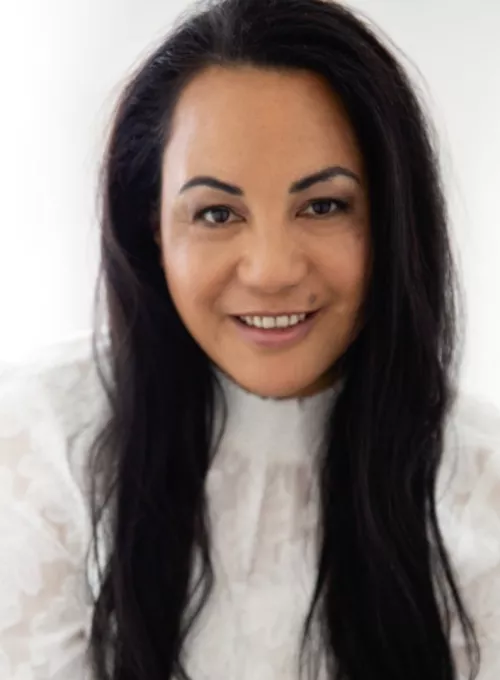
Lorraine Hetaraka is the Chief Nurse at the Ministry of Health | Manatū Hauora. In this role, she provides expert advice on nursing to the government, leads on nursing policy and strategy, provides professional leadership to the nursing profession in New Zealand, and ensures our country effectively contributes to nursing policy at an international level.
Lorraine is well known across the health system for her contributions to Māori nursing and Māori health development. Her journey in Māori health began at the age of 22 when she signed up to study nursing at the Waiariki Polytechnic (now Toi Ohomai Institute of Technology). This decision was driven by her desire to be a positive role model for her tamariki and to help make a difference for whānau Māori.
Lorraine was brought up with a large, extended whānau in Te Tai Tokerau. This exposed her to the reality of poor health outcomes in Māori communities. She saw her father’s generation pass away in their 50s and 60s from preventable illness and disease. The same was true for her mother’s family. All this shaped Lorraine’s passion for Māori health and propelled her throughout her career.
Another significant driver of success in Lorraine’s career has been the Māori leaders that mentored her. While at Waiariki, Lorraine was fortunate to have support from several Māori lecturers, including Professor Denise Wilson, Mere Balzer and Ngaira Harker. She also received decolonisation training from Moana Jackson and completed cultural safety with Rangimarie Te Turuki Arikirangi Rose Pere.
Lorraine started her nursing career in 1997 as the first ever Māori new graduate at Tauranga Hospital. Lorraine worked there for 3 years starting off in Te Puna Hauora, the kaupapa Māori health unit, and finishing in the children’s ward.
Lorraine then shifted to Tāmaki Makaurau (Auckland) to work at Starship Children’s Hospital. During her time there she had an opportunity to do community nursing in West Auckland. This gave her a good understanding of what was happening in the community for tamariki. It also opened her eyes to the wider determinants of health like housing and access to care.
While at Starship, Lorraine became one of two Māori nurse specialist the other was Mars Delamere. She had a specific focus on bronchiectasis – a long-term childhood illness caused by pneumonia, chest infections and chronic productive cough. As a nurse specialist, Lorraine case-managed just over 160 children with bronchiectasis.
After seeing the lifelong impact of this debilitating preventable disease and at times premature death, Lorraine had a poignant moment of realisation – despite being a nurse specialist in the hospital, she was unable to prevent the illnesses these tamariki were facing. So, she took up a job in primary care at Tāmaki Healthcare, one of the first Māori PHOs established in Tāmaki.
At Tāmaki Healthcare, Lorraine was fortunate to get further mentoring from other Māori health leaders. Specifically, she had the opportunity to work with Matire Harwood the Clinical Director for Tāmaki Healthcare and Chief Executive Tereki Stewart.
Lorraine and Matire were seconded to the National Hauora Coalition which was newly established at the time. Her mahi at the National Hauora Coalition involved supporting the development of a Whānau Ora Clinical Governance Framework, supporting the establishing of the Māmā Pēpi Tamariki Programme, as well as the long-term conditions programme called Oranga Ki Tua. Lorraine was then appointed Associate Director of Nursing a joint appointment between the University of Auckland and Auckland DHB. Under the leadership of Taima Campbell the first Māori Executive Director of Nursing. Taima helped influence and shape Lorraine’s leadership, during this time she supported a number of workforce development initiatives for rangatahi and nurse graduates.
Lorraine then shifted to ProCare, New Zealand’s largest PHO, where she was the Director of Nursing. While there, she completed her master’s thesis He Ope Awhi – Best Practice for Recruitment of Māori New Graduate Nurses at the University of Auckland and was awarded first class honours. The thesis title was gifted by Dame Naida Glavish. The thesis focused on increasing the employment of Māori new graduates into Primary Care. A pilot initiative as part of her masters saw the successful employment of 12 Māori new graduate nurses in one year across Counties Manukau. The highest number of Māori new graduates employed on the Nursing Entry to Practice Programme in primary care for the Counties region.
Lorraine then shifted back to the Bay of Plenty where she was appointed as the Chief Executive for Te Arawa Whānau Ora. Not long after, Lorraine stepped into the role of Chief Nurse at the Ministry of Health.
The experience of working in hospital, primary care and Whānau Ora has helped shaped Lorraine’s leadership and this gave her a strong desire to serve whānau through striving for nursing excellence. The role of Chief Nurse at the Ministry gives her the opportunity to continue to serve those with the highest need, and ensure future generations are given not only equitable health services but also the opportunity to thrive.
Links:
- Ministry of Health Office of Chief Nurse
- Million Dollar Fund Launched To Help Nurses Return To Practice - Scoop article 14 February 2022
- New chief nurse seeks leadership shift - Kai Tiaki Nursing New Zealand article 9 February 2021
- The Royal Australasian College of Medical Administrators (RACMA) Speaker Profile Lorraine Hetaraka
Updated 20 December 2024
